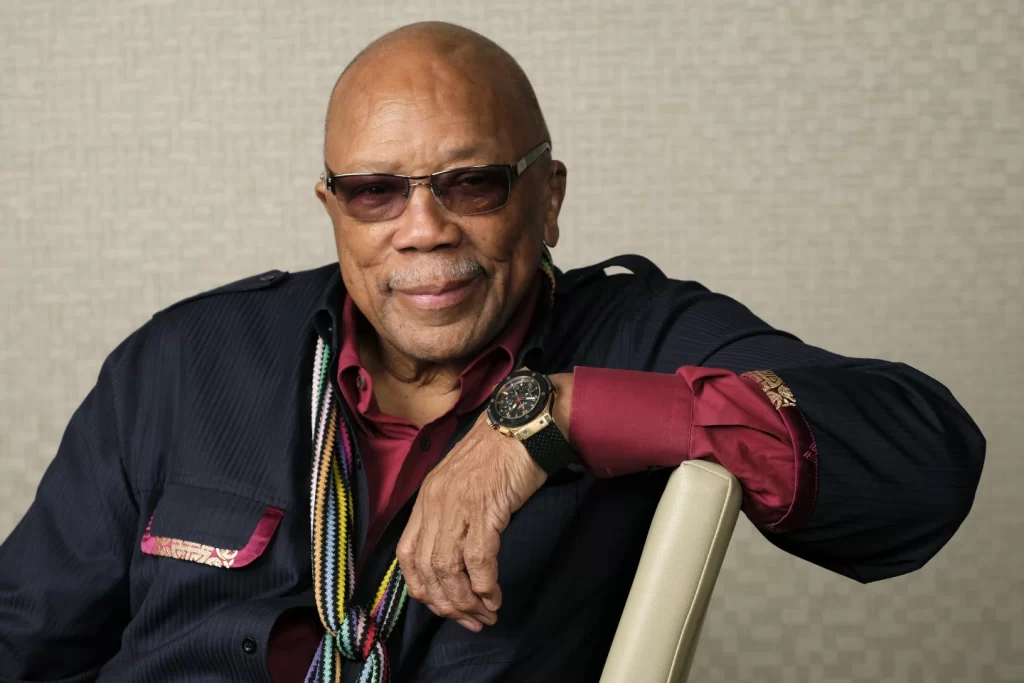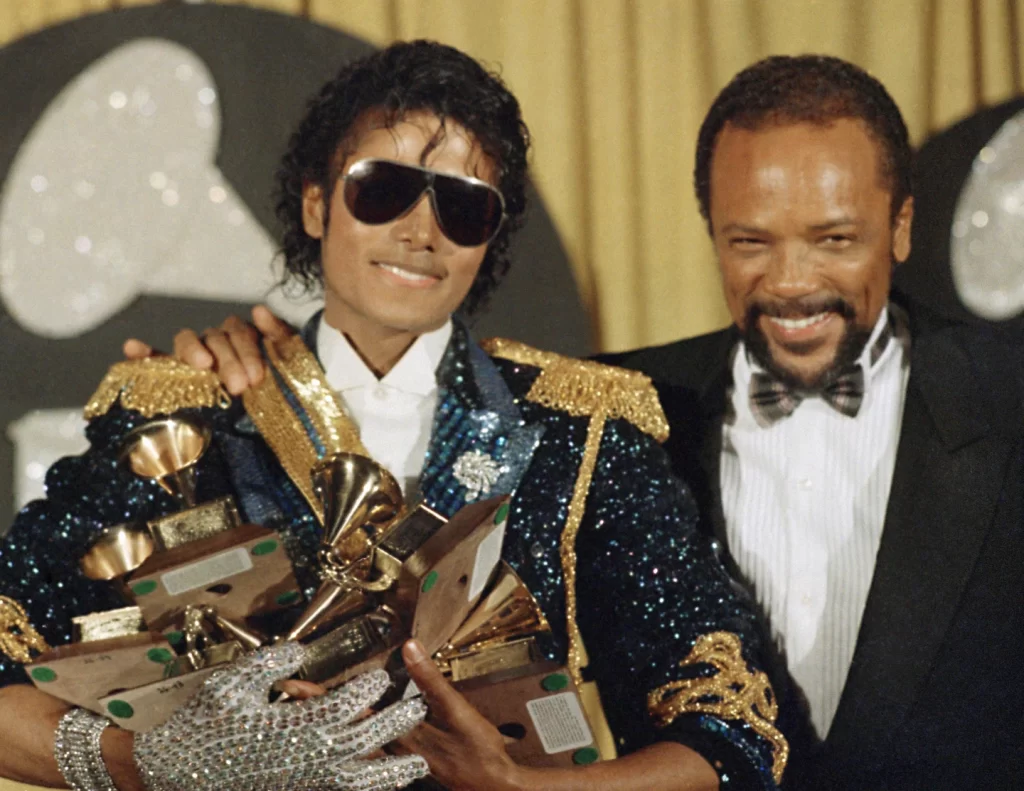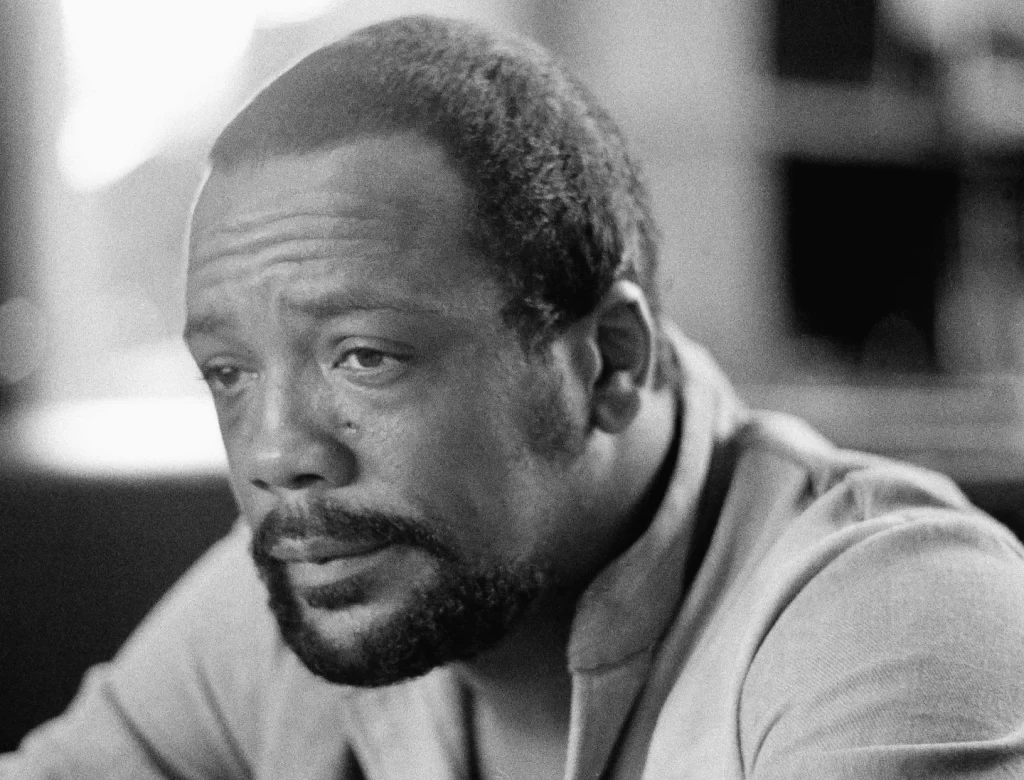Quincy Jones, the towering music industry figure who produced Michael Jackson’s “Thriller,” arranged for Frank Sinatra, and broke racial barriers as one of Hollywood’s first Black executives, died Sunday at his Bel Air home. He was 91.

His death was confirmed by publicist Arnold Robinson, who said Jones was surrounded by family in his final moments.
“Tonight, with full but broken hearts, we must share the news of our father and brother Quincy Jones’ passing,” his family said in a statement. “And although this is an incredible loss for our family, we celebrate the great life that he lived and know there will never be another like him.”
Jones’ extraordinary six-decade career transformed American popular music. From Chicago’s violent South Side, he rose to become one of entertainment’s most influential figures, collecting 28 Grammy Awards, two honorary Oscars, and an Emmy while producing some of the best-selling records in history.

His crowning achievement came through his collaboration with Michael Jackson on three landmark albums: “Off the Wall,” “Thriller,” and “Bad.” “Thriller” alone sold more than 20 million copies in 1983 and ranks among the best-selling albums ever recorded. Jones’ innovative production merged disco, funk, rock, and African rhythms, helping Jackson ascend to “King of Pop” status.
“If an album doesn’t do well, everyone says ‘it was the producers fault’; so if it does well, it should be your ‘fault,’ too,” Jones told the Library of Congress in 2016. “The tracks don’t just all of a sudden appear. The producer has to have the skill, experience and ability to guide the vision to completion.”
Born in Chicago in 1933, Jones escaped a troubled childhood through music, learning piano at a community center after his mother was institutionalized. He befriended a young Ray Charles and earned a scholarship to Berklee College of Music, though he left to tour with Lionel Hampton’s band.

By his mid-20s, Jones had arranged for stars like Frank Sinatra and Ella Fitzgerald. He became Mercury Records’ first Black vice president in the 1960s and later composed scores for films including “In the Heat of the Night” and the groundbreaking TV series “Roots.”
In 1985, Jones organized “We Are the World,” gathering music’s biggest names — including Bob Dylan, Bruce Springsteen, and Stevie Wonder — for African famine relief. The project epitomized his talent for bringing together diverse artists for common causes.
Jones also ventured successfully into business, launching Quincy Jones Entertainment and the magazine Vibe. His influence extended beyond music to film production, including “The Color Purple,” which received 11 Oscar nominations in 1986.
“My philosophy as a businessman has always come from the same roots as my personal credo: take talented people on their own terms and treat them fairly and with respect, no matter who they come from,” Jones wrote in his 2001 autobiography “Q.”

His personal life was as colorful as his professional one. Married three times, including to actress Peggy Lipton, Jones fathered seven children with five women. Following Martin Luther King Jr.’s assassination in 1968, he became increasingly involved in civil rights and philanthropy.
Jones is survived by daughters Jolie Jones Levine, Rachel Jones, Martina Jones, Kidada Jones, Kenya Kinski-Jones, and Rashida Jones; son Quincy Jones III; brother Richard Jones; and sisters Theresa Frank and Margie Jay.
His death marks the end of an era in American music, leaving behind a legacy that transformed entertainment and opened doors for generations of Black artists and executives.
apnews.com



